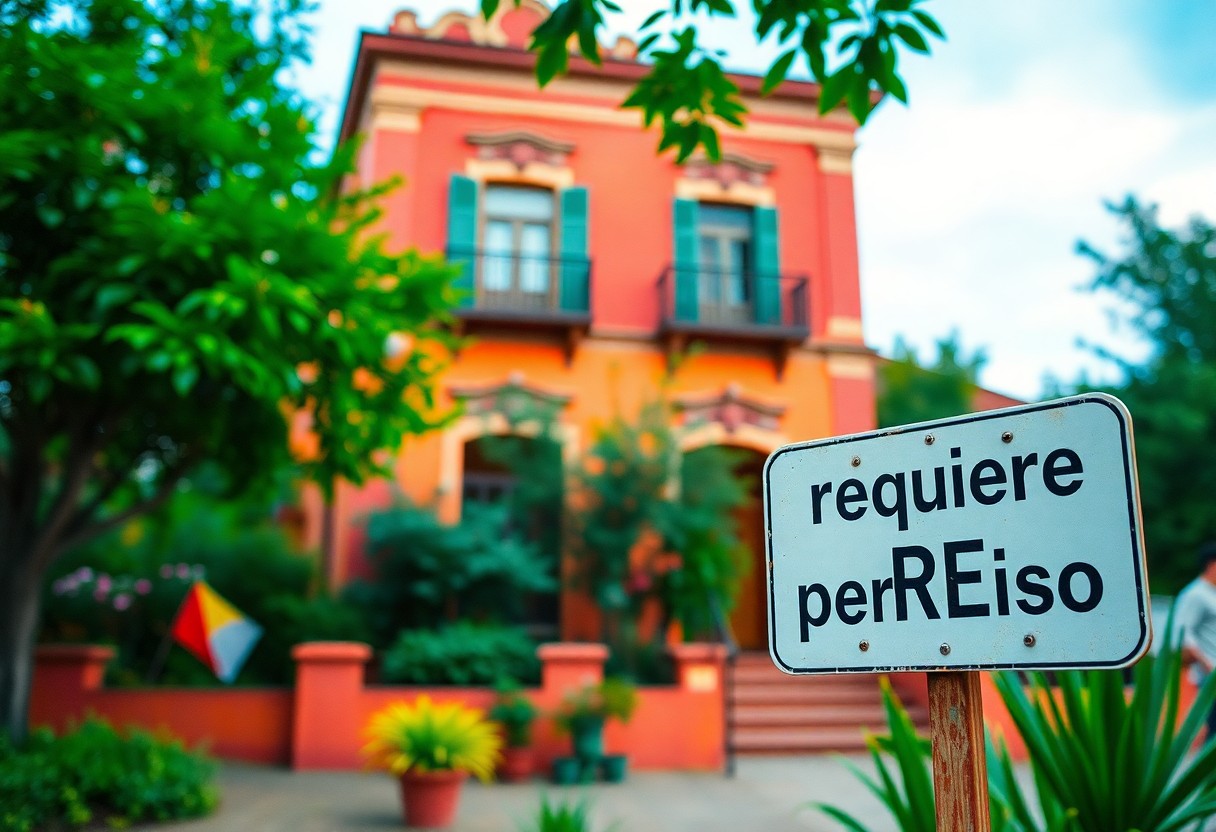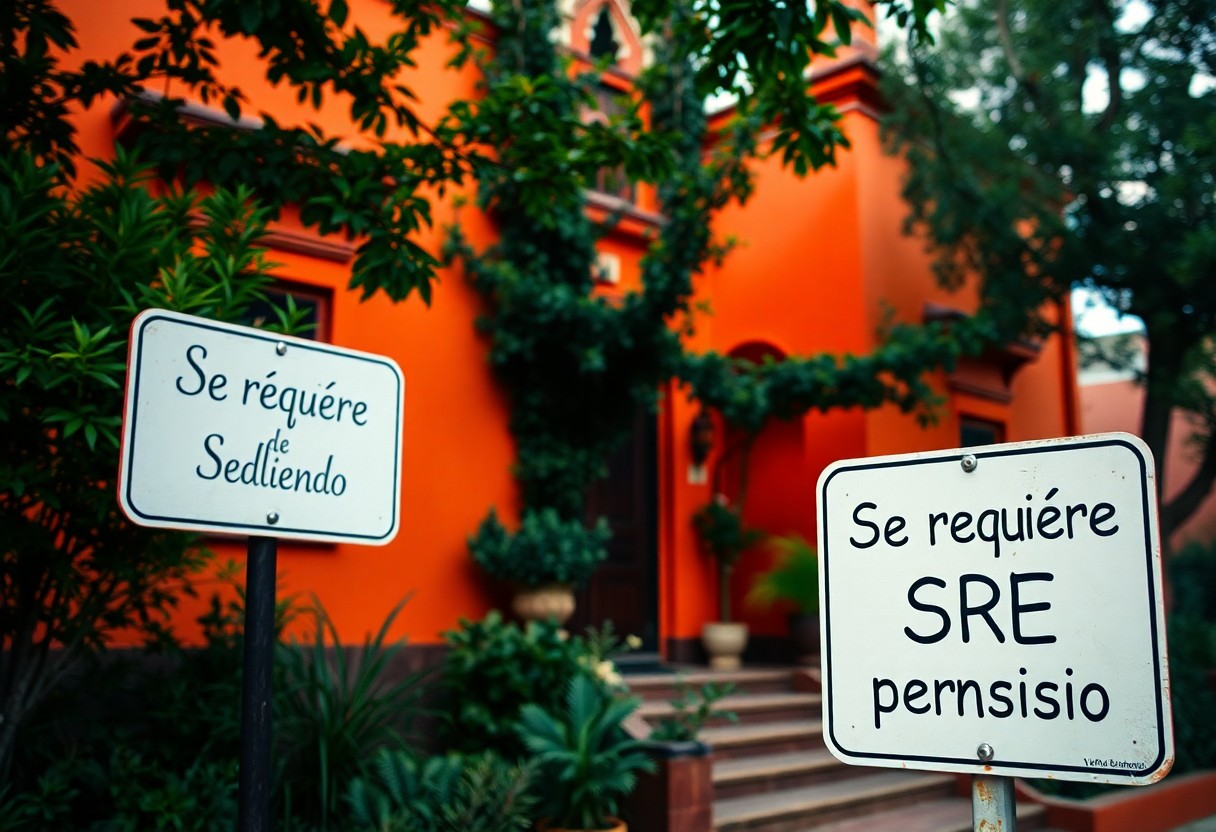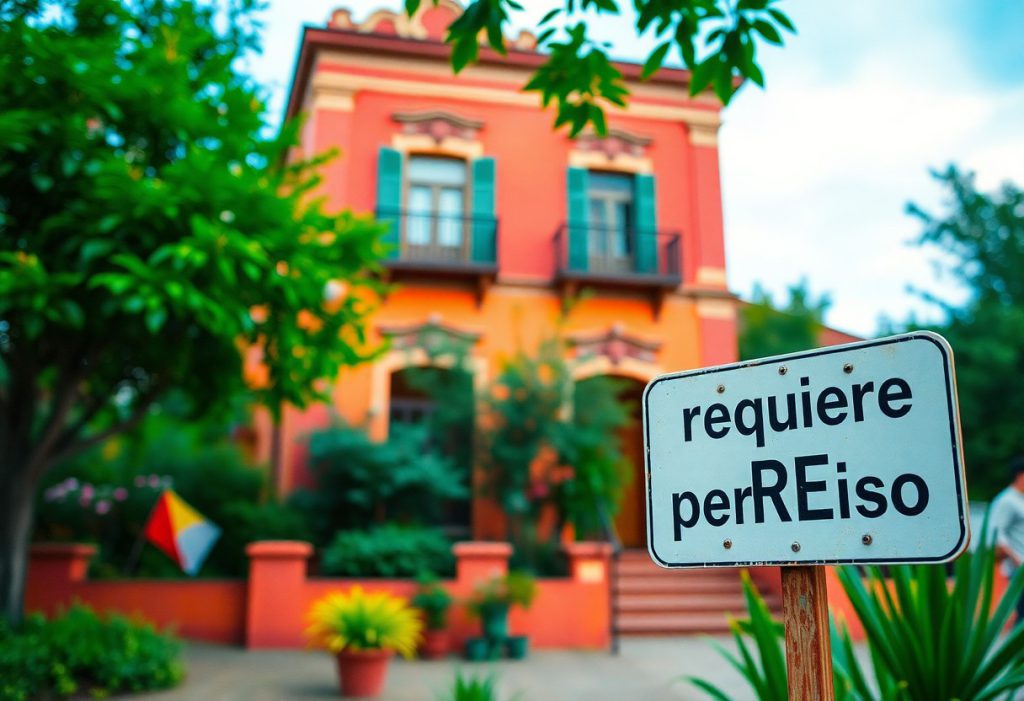Your Comprehensive Resource for Foreign Buyers: Securing the Essential SRE Permit in San Miguel de Allende
The SRE permit is an indispensable document that foreign nationals must acquire when purchasing real estate in Mexico, particularly in San Miguel de Allende. This permit, issued by the Mexican Ministry of Foreign Affairs, formally acknowledges your rights as a property owner under Mexican law. Without the SRE permit, you cannot register your property deed, making it a crucial requirement in the real estate acquisition process. Moreover, the SRE permit ensures that foreign buyers are treated equally under Mexican laws, providing them with the same rights as Mexican citizens regarding property ownership and transactions.
Why the SRE Permit is Fundamental for Foreign Property Ownership
Many foreign buyers may not realize that the SRE permit is a mandatory legal requirement for owning property in Mexico. This vital document not only facilitates the registration of your property deed but also ensures that you comply with all Mexican laws and regulations regarding property ownership. Regardless of whether you are in Mexico on a tourist visa, obtaining this permit is imperative as soon as your property offer is accepted. The SRE permit serves as a protective measure for your investment, guaranteeing that your rights as a property owner are upheld within the framework of local laws and regulations.
Understanding the Significance of the Cláusula Calvo Agreement
By consenting to the Cláusula Calvo, you agree to comply with Mexican laws and taxes concerning any possible property disputes that may arise in the future. This agreement is a key component of the SRE permit process, as it requires you to waive the right to seek intervention from your home country's legal systems. This binding commitment underscores the importance of adhering to Mexico’s legal framework throughout your property ownership journey, fostering a smoother transition into the Mexican real estate market.
Additionally, the Cláusula Calvo offers protection against potential foreign government interference in your property ownership. Should you face legal or financial issues in your home country, your property in Mexico will remain secure and unaffected. Gaining a clear understanding of this agreement is essential for anyone considering property ownership in Mexico.
Analyzing the Financial Aspects of the SRE Permit
The cost associated with obtaining the SRE permit is approximately $7,500 pesos per person. This fee is typically paid to your notary or attorney, who will forward the majority of the funds to the Secretary of Foreign Affairs while retaining a smaller portion for their services. Although this fee might seem considerable, it represents a necessary investment to ensure that your property rights are legally recognized and protected within the Mexican legal system.
Furthermore, it’s essential to recognize that Cláusula fees are included in the overall SRE permit cost, ensuring that your property deed aligns with Mexican law. Be aware that any delays or mistakes in the application process could lead to additional costs, highlighting the importance of working with a reputable notary or attorney to expertly navigate the complexities associated with the permit application.
Exploring Various Property Ownership Structures Available in Mexico
Foreign buyers in Mexico must have a thorough understanding of the diverse types of ownership options available to them. The primary ownership structures include:
- Direct Ownership: This option is available outside restricted zones, granting you full ownership rights without the need for intermediaries.
- Bank Trust (Fideicomiso): This is required for properties located in restricted zones, where a Mexican bank holds the title in trust for you as the buyer.
- Mexican Corporation: This structure is advantageous for commercial properties and managing multiple investments simultaneously.
- Ejido Land: This communal land is typically not available for foreign ownership without undergoing a conversion process.
- Condominium Regime: This common arrangement is utilized for shared spaces, such as condominiums or gated communities.
Understanding these various ownership structures is vital to ensuring you select the most appropriate arrangement for your property in San Miguel de Allende.
| Type | Description |
|---|---|
| Direct Ownership | Full ownership rights available outside restricted zones. |
| Bank Trust (Fideicomiso) | Mandatory in restricted zones; a bank holds the property in trust for you. |
| Mexican Corporation | Ideal for commercial properties or when managing multiple investments. |
| Ejido Land | Communal land that is rarely available for foreign ownership. |
| Condominium Regime | Shared ownership system for condominiums or gated community properties. |
Deciding Between Direct Ownership and Bank Trust (Fideicomiso)
When purchasing property in Mexico, foreign buyers must make a significant decision between direct ownership and a bank trust. Direct ownership provides a straightforward solution, granting full control over the property but is limited to areas outside restricted zones. Conversely, in restricted areas, such as coastal regions or near borders, establishing a bank trust is a legal requirement. In this arrangement, the bank legally holds the property title in your name, ensuring compliance with Mexican laws. Both ownership options offer legal protections, but a bank trust can add an additional layer of security for foreign property buyers.
Identifying Restricted Zones in Mexico
Mexico has designated specific areas as restricted zones, which include land within 100 kilometers of international borders and 50 kilometers from coastlines. In these regions, foreign buyers are prohibited from owning property directly. Instead, they must utilize a bank trust (Fideicomiso) or establish a Mexican corporation to hold the property title on their behalf. This regulation ensures adherence to Mexican law while allowing foreign investors to acquire real estate in desirable locations like San Miguel de Allende.
Bank trusts are the most common option for foreign buyers in restricted zones, as they provide legal protection and the ability to enjoy, sell, or transfer the property as needed. However, it is crucial to comply with all rules and regulations; any failure to do so could result in legal complications. Collaborating with a trustworthy notary or attorney is essential to ensure that your investment remains secure. Understanding these restrictions is central to making informed property purchasing decisions in Mexico.

A Detailed Step-by-Step Process for Securing the SRE Permit
Acquiring your SRE permit when purchasing property in San Miguel de Allende involves a clear and systematic series of steps. Below is a comprehensive breakdown of the entire process:
| Step 1 | Contract Signing |
| Step 2 | Initiate Application Process |
| Step 3 | Property and Notary Details |
| Step 4 | Awaiting Approval |
| Step 5 | Integration into Property Deed |
Step 1: Finalizing the Contract
Once you’ve successfully signed the buy-sell agreement and submitted your earnest money deposit, it is vital to promptly initiate the SRE permit process. Delaying this first step can significantly slow down your property acquisition, so it is crucial to coordinate closely with your real estate agent or notary to ensure that the process begins without any unnecessary delays.
Step 2: Launching the Application Process
After your agent or notary has started the SRE permit application process, you will need to provide your signature to finalize the application. This step is essential, as it legally binds you to the terms outlined in the Cláusula Calvo, ensuring your commitment to adhere to Mexican property ownership laws and regulations.
Your notary or attorney will then submit the application to the Mexican Ministry of Foreign Affairs, after which you will receive a folio number. This number serves as a temporary identifier for your permit application and allows you to continue with the property purchase while the SRE permit is being processed.
Step 3: Providing Accurate Property and Notary Information
The involvement of a notary is crucial at this stage. The SRE permit is specifically tied to the property you are acquiring, making it imperative that all details correlate accurately with the property deed. Your notary will meticulously verify this information to prevent any potential delays or legal complications that could arise during the process.
Working closely with your notary, you will confirm that all property specifics align with the application for the SRE permit. Any discrepancies could lead to complications, so it is essential to double-check the legal description, location, and ownership information of the property to ensure a smooth transaction.
Step 4: Understanding the Waiting Period
Being aware of the specifics regarding the waiting period for your SRE permit is essential for effective planning. Typically, the processing time for the SRE permit ranges from 3 to 6 weeks. While you can proceed with the purchase process using the folio number during this time, it is critical that the final SRE permit is integrated into the property deed before closing the transaction.
During this waiting period, it is wise to maintain regular communication with your notary to ensure that the permit application is progressing as expected. Delays are possible, so staying informed is crucial to avoid any last-minute surprises that could negatively impact your transaction.
Step 5: Finalizing the Integration of the Permit into the Property Deed
The final step involves incorporating the details of the SRE permit into your property deed. This incorporation legally acknowledges your acceptance of the Cláusula Calvo and confirms your commitment to abide by Mexican property laws and regulations.
At this stage, ensuring that all contract details are accurate is critical. Any errors could invalidate your permit, so your notary will carefully review the deed before finalizing the transaction. Once this step is completed, you will officially own your property in San Miguel de Allende, marking a significant milestone in your real estate journey.

Essential Tips for a Successful Property Purchase in San Miguel de Allende
When buying property in San Miguel de Allende, careful planning and research are essential. Start by conducting thorough research on the local market and familiarizing yourself with the regulations governing property transactions. Engaging a reputable real estate agent with extensive knowledge of the area will be invaluable in navigating the process. Additionally, ensure you have all necessary documentation, including your SRE permit, organized and available prior to closing. This proactive approach will help you avoid delays and facilitate a seamless transaction.
Collaborating with a Trustworthy Notary or Attorney
When it comes to purchasing property in Mexico, professional guidance is irreplaceable. A reputable notary or attorney will ensure that your transaction adheres to all local laws and regulations. They will manage the application for the SRE permit, verify property titles, and supervise the closing process, safeguarding your investment and providing peace of mind throughout your buying journey. Their expertise is crucial for navigating the complexities of the Mexican real estate landscape.
Utilizing Power of Attorney (POA) for Remote Buyers
If you cannot be present during the property purchase process, securing a Power of Attorney (POA) becomes essential. This legal document allows a trusted representative to sign necessary documents on your behalf. It is crucial that the POA is drafted by a licensed Mexican attorney and notarized with an Apostille for international recognition. This ensures that your purchase can proceed smoothly, even if you are not physically present in Mexico.
Remote buyers often encounter challenges related to timing and logistics. A POA simplifies this process by enabling a trusted individual to act on your behalf. Be sure to have the document properly authenticated and submitted to your notary in Mexico to avoid delays and facilitate the successful completion of your property purchase.
Navigating Local Taxes and Fees in Property Transactions
Collaborating with a qualified professional is vital for understanding the various taxes and fees associated with your property purchase. In San Miguel de Allende, you will encounter expenses such as acquisition tax, notary fees, and annual property taxes. Familiarizing yourself with these costs beforehand is crucial for accurate budgeting and avoiding unexpected financial burdens, allowing for a more straightforward purchasing experience.
In Mexico, notary fees generally range from 1% to 2% of the property's value, while acquisition taxes may vary between 2% and 5%. Although annual property taxes are relatively low, they can fluctuate depending on the property’s location and value. Failing to account for these expenses might lead to financial strain, which is why consulting your notary for a detailed cost breakdown is highly advisable to maintain clarity in your financial planning.
Important Factors to Consider Before Purchasing Property in San Miguel de Allende
Purchasing real estate in San Miguel de Allende requires careful evaluation of several factors that may differ significantly from property transactions in your home country. You should contemplate:
- Location: Assess proximity to essential amenities, safety, and overall accessibility to local services.
- Legal Requirements: Ensure full compliance with Mexican property laws, including securing the SRE permit, to avoid complications.
- Budget: Account for additional costs like taxes, notary fees, and ongoing maintenance expenses to create a comprehensive financial plan.
While the process may initially seem daunting, thorough preparation can lead to a successful and smooth transaction, ensuring peace of mind as you embark on your new ownership journey.
Evaluating Location and Understanding Restricted Zones
Some regions in Mexico, including San Miguel de Allende, are situated outside of restricted zones, making them ideal for foreign property buyers. However, it remains essential to verify the specific location of any property you are considering to prevent complications. Restricted zones, such as coastal or border areas, necessitate purchasing through a bank trust or establishing a Mexican corporation. Always confirm the legal status of the property before moving forward with the purchase to avoid unexpected challenges.
Understanding Legal and Financial Considerations
Comprehending the implications of restricted zones and foreign ownership laws in Mexico is crucial. You must obtain the SRE permit to legally register your property. Additionally, signing the Cláusula Calvo is necessary, as it signifies your agreement to comply with Mexican laws. On the financial side, you need to consider notary fees, property taxes, and potential costs associated with establishing a trust if buying in restricted zones.
Before finalizing your purchase, it is advisable to consult with a local attorney to ensure compliance with all legal requirements. They can assist you in navigating the SRE permit process and clarifying any financial obligations. Neglecting this step could lead to costly legal disputes or, worse, the loss of your property, emphasizing the importance of thorough legal guidance.
Evaluating Long-Term Investment Potential in San Miguel de Allende
If you are contemplating investing in San Miguel de Allende for its charm and cultural allure, you are making a sound long-term investment. The city's increasing popularity among expats and tourists has led to a steady appreciation in property values. By securing the SRE permit and ensuring compliance with local regulations, you are not only protecting your investment but also enhancing its potential for growth over time.
Maintaining legal compliance is essential for safeguarding the value of your property. With the appropriate permits in place and a thorough understanding of local regulations, your investment in San Miguel de Allende can yield significant returns. Always collaborate with trusted professionals to maximize the potential of your property and ensure a successful investment experience.

Evaluating the Advantages and Disadvantages of Investing in Mexican Real Estate
To aid in your decision-making process, here’s a detailed overview of the benefits and drawbacks of purchasing property in Mexico, particularly in San Miguel de Allende:
| Advantages | Disadvantages |
| Lower property prices compared to many other countries | Restricted zones necessitate bank trusts or corporations for ownership |
| Favorable climate and rich cultural experiences | Legal processes can be complex for foreign buyers |
| Robust expat community in San Miguel de Allende | Language barriers may complicate transactions |
| Opportunities for rental income or vacation usage | Currency fluctuations could impact overall costs |
| Lower cost of living overall in Mexico | Ongoing property taxes and maintenance expenses can accumulate |
Benefits of Property Ownership in Mexico
Owning property in San Miguel de Allende offers a unique opportunity to immerse yourself in a vibrant cultural landscape, enjoy a warm climate, and connect with a welcoming expat community. You can take advantage of affordable property prices while also benefiting from the potential for long-term appreciation. Furthermore, owning real estate here allows you to partake in the charm of a UNESCO World Heritage city, celebrated for its stunning colonial architecture and rich artistic heritage, enhancing your living experience.
Recognizing Potential Challenges and Risks of Property Investment
It’s crucial to acknowledge the legal complexities associated with purchasing property in Mexico. Navigating restricted zones, obtaining the SRE permit, and understanding local laws can be challenging for foreign buyers. Language barriers and unfamiliar processes may also present obstacles. Additionally, currency fluctuations and unforeseen costs can affect your overall budget and financial planning.
Acquiring property in Mexico, particularly in San Miguel de Allende, necessitates careful planning and consideration. Restricted zones adjacent to borders and coastlines require special arrangements, such as bank trusts. The SRE permit is a requisite and entails a processing time of 3 to 6 weeks. Moreover, you must consider property taxes and potential maintenance fees that may arise. While navigating this process can be intricate, partnering with trusted professionals will facilitate a smoother experience. Always verify legal details to mitigate risks and safeguard your investment.
Essential Resources for Foreign Property Buyers in San Miguel de Allende
To ensure a seamless property purchase in San Miguel de Allende, it is essential to have access to reliable resources. These include legal experts, reputable real estate agents, and various tools designed to simplify the buying process. Having the proper support will help you comply with Mexican laws, such as obtaining the SRE permit, while also avoiding potential pitfalls. With the right guidance, you can confidently and securely navigate the transaction.
Key Contacts: Notaries, Lawyers, and Real Estate Agents
Trusted professionals, including notaries, attorneys, and real estate agents, are vital to your property acquisition. In Mexico, a notary is a licensed legal professional responsible for overseeing property transactions and ensuring compliance with local laws. Your attorney can help clarify the SRE permit process and the Cláusula Calvo agreement. A knowledgeable real estate agent who understands the San Miguel de Allende market can guide you toward properties that align with your preferences and budget, streamlining your purchasing experience.
Helpful Tools and Services for Property Buyers
Utilizing resources such as online property listings, legal document translation services, and reliable shipping companies can streamline your purchasing journey. Tools like Apostille Pros or Apostille.net facilitate the authentication of documents, such as Power of Attorney, for use in Mexico. These services can save you time and ensure that your paperwork is thorough and legally valid, making the process more efficient.
It is imperative to use
Comments are closed



The importance of understanding and acquiring the SRE permit for foreign buyers in San Miguel de Allende cannot be overstated, and your post does an excellent job of outlining its significance. As someone who has navigated the complexities of purchasing a property in another country, I can personally attest to how vital it is to familiarize oneself with local regulations, especially regarding ownership rights. This process can truly be daunting, but knowledge, as you’ve highlighted, is power.